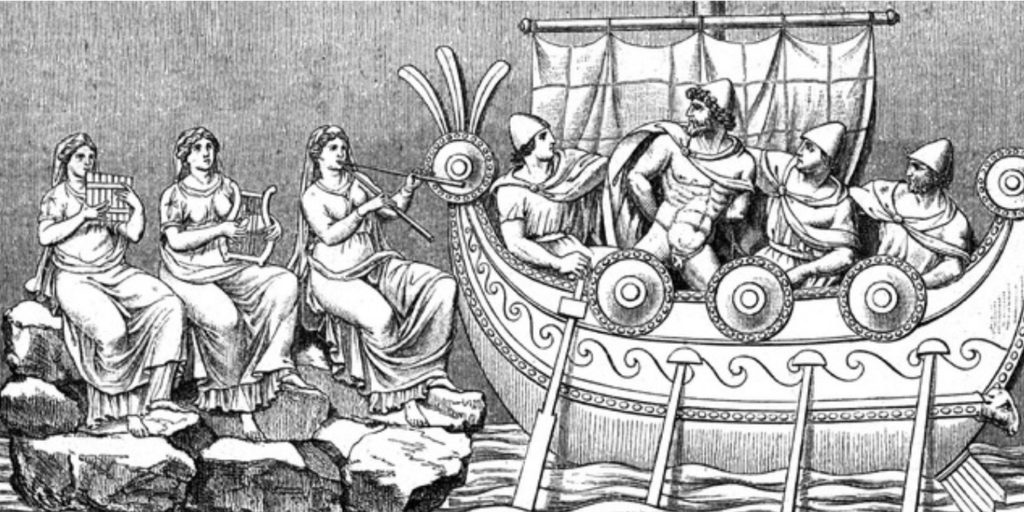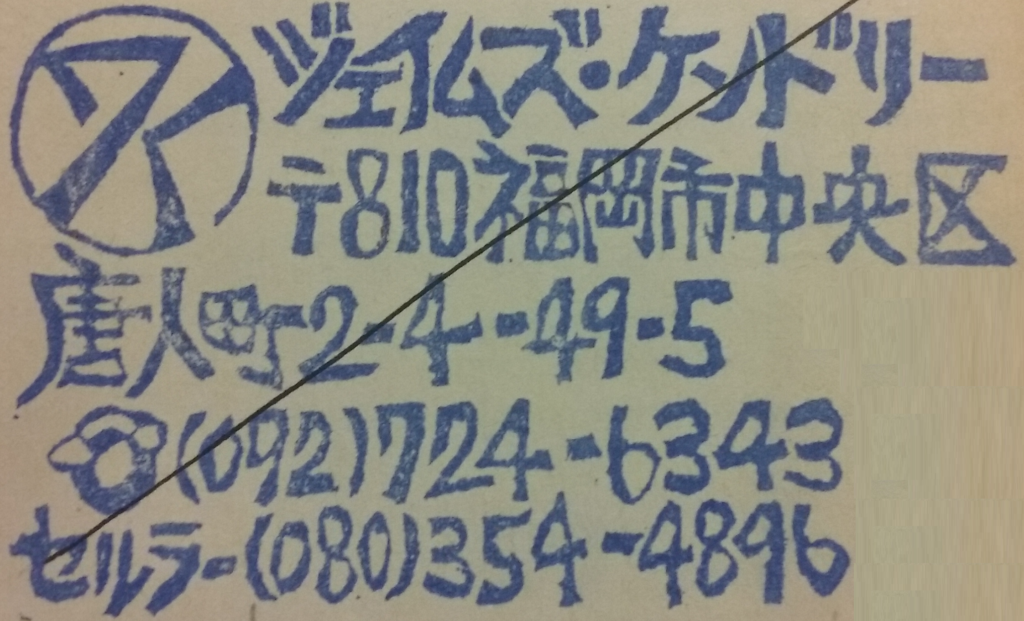
In 1992, I started writing an Ambitious Literary Novel, The Wine Ghost. It’s a novel of redemption and recovery on a world-wide stage where we consider the terrible freedom of Frank Boyles, the last Baby Boomer.
I have written elsewhere that it took 300K words to achieve the current 100K. The 200K excess words were properly jettisoned or repurposed, but there’s one abandoned subplot, a true story, that I feel compelled to tell you now.
The Lure of Salvage
Thanks to a Japanese gentleman of impeccable taste, my favorite record store of all time was a small shop in the basement of a department store in the Tenjin district of Fukuoka City, Japan, circa 1996.
I went on Wednesdays, killing time between my day job and moonlighting. In the used bin, I found wonderful CDs. I discovered H.K. Gruber in that bin, and I discovered Julian Lloyd Webber and Gavin Bryars in that bin.
But as I browsed over weeks and weeks, a fascinating pattern emerged.
I discovered Harold Budd in the bin because of Through the Hill, his collaboration with Andy Partridge of XTC. In later weeks, I found Budd’s ambient collaborations with members of Cocteau Twins and with Brian Eno.
Then came a collaboration of Eno with Robert Fripp of King Crimson, and then a collaboration of Adrien Belew of King Crimson with Ryuichi Sakamoto of YMO, and then a collaboration of Cocteau Twins and Faye Wong. It was a daisy chain of fantastic musical associations just slightly off my radar.
I went on an associative, stream-of-consciousness chase from ambient to prog to Taiwanese pop back to Japanese techno, burrowing down musical rabbit holes in an around-the-world trip with pit-stops for African reggae, Michael Nyman’s postmodern Baroque, and classic Italian pop, all in one little used CD bin in the basement of a Japanese department store. It was heavenly, like having an invisible DJ.
Always on Wednesdays.
I went on other days of the week, but it was all crap until Wednesday mornings, when Tuesday trade-ins were cataloged, priced, and slipped into the bin. I was following in the wake of a single eclectic explorer.
I inquired, of course. The clerks were smart and efficient, if a little wary of the unkempt foreigner who had begun to hit the used CD bin at all hours on any given day of the week.
I showed them some of my selections and observed that the individual who traded them in must come in on Tuesdays. They agreed, using the masculine third-person pronoun to refer to the customer.
I asked casually if the customer was Japanese, and the clerks were instantly skittish, on high alert. Foreigners can be a lot of fun, but they’re like big, dirty dogs; you don’t really know when they’re going to make a mess, and you don’t want to get involved with one unless you’re sure it’s had its shots.
Backpedaling ensued. I assured them that I wanted only to compare notes on music, not to bother anyone. I left them my card so they could pass it to the Japanese gentleman of impeccable taste, and I went on my way. My card was a hysterical overreaction to the staid, button-down business world I moved in at the time, the worst possible way to convince Japanese people of my stability:

Anyway, I never heard from him.
I was free one Tuesday a few weeks later. I stopped at a little restaurant in that department store basement for the grilled mackerel, but I had a clear view of the record store. And it was a Tuesday.
I was a stalker!
It was simply thrilling.
As I sat there playing with my fish and idly watching the record store, a whole new subplot of the novel came clear: Frank Boyles, relieved of his mental anguish for brief spans by the balm of music from an unknown benefactor, begins stalking the Japanese gentleman of impeccable taste. Lured by the (yep) siren song of this musical mystery, he comes tantalizingly close (yes, yes, I can work Tantalus in, too), getting enough glimpses of the customer that when he finally spots the poor man on the street one day, he can drunkenly accost him and try to talk music, pursuing the siren song to an absurd and humiliating crescendo: handcuffed to a telephone pole near a Japanese police box like Odysseus lashed to his mast, listening against his will to Japanese ’70s soft rock from the shops nearby.
If the Japanese gentleman of impeccable taste traded in discs that day, I didn’t notice. I was too busy writing.
In the long run, the true story is better than the siren-song subplot I wrote and then later stripped out of The Wine Ghost. I’m glad I never found the Japanese gentleman of impeccable taste, but I will always be grateful. I still have most of the discs.
Darlings and When to Kill Them
The subplot of the Japanese gentleman of impeccable taste was one thread of an elaborate and extended parodical Odyssey allegory woven through The Wine Ghost.
Because after all, what is an Ambitious Literary Novel without an elaborate and extended parodical allegory?
The allegory was distracting, so I cut it. Odyssey allegory cuts were about 10K words of 200K that did not make it to the final draft.
The history of the cuts is another story I want to tell:
- In 1992, I was in Japan writing about Japan. I was way too close to the subject matter for my own good. There was no real reflection, no mental space to polish those daily lessons into art. My daily fiction output became a mundane journal, me figuring out Japan as I went. By 1996, more than 75K words of cultural observation and linguistic noodling disguised as narrative fiction had gone into the trashcan icon of my little Mac Plus (system 3.1j). No trace of all that daily processing remains in the current version.
- By 1998, another 75K words — almost twenty chapters of drunken desert backstory — had gone into the animated Oscar the Grouch trashcan on my Mac Performa 5200 (system 7.5.1j+). The first three chapters of the present version are all that remains of that ancient, crumbling desert empire.
- In 2004, back in the States for almost five years, I had a complete draft of 150K words on my blueberry iMac. After a few abortive attempts to sell it, I pretended to ignore it.
- By September 2015, a 30K-word Wine Ghost subplot had gone into The Devouring God, also conveniently set in Fukuoka, Japan, 1993 (same year, same universe, different genre). About 10K words’ worth of spooky stories scattered throughout The Wine Ghost had also gone into the trash, but one came back to haunt us as “Tracy-Baby Tells a Ghost Story” in Danse Macabre, thence into The Mooncalf and Other Tales.
- Final cuts came in December 2019 – May 2020. Despite my best efforts to smooth it out, bits of the tortured and torturous allegory remain, among them: a jilted fiance playing the part of Penelope; weathered cow bones as the Cattle of the Sun; a wretched, one-eyed uncle as Polyphemus the Cyclops; a veteran gaijin as Tiresias surrounded by other hungry ghosts of the underworld; alcoholism itself as Circe turning men to beasts with magical cocktails; Laestrygonians and lotus-eaters galore; and a narcoleptic girlfriend as Calypso pushing protagonist Frank Boyles off the island.
Out of the Bin and Into Your Head
Why I’m writing about this now: XTC’s Black Sea was released 40 years ago today. It’s a powerhouse album from start to finish, still amazing, and the 5.1 surround release is like hearing it for the first time; the kick drum on “Travels in Nihilon” is right at the front, like being lightly punched in the chest 4,000 times during the course of the song, if you have your volume right.
I have a 1980 UK pressing of Black Sea, framed so I can see the hole punched in the lower left corner.
It was a cut-out. One of the best albums of the 1980s once sat in a cut-out bin.
That weird little irony reminds me not to judge anyone’s work or legacy by sales figures, and it reminds me not to judge a disc by its bin – or my own novel by how long I let it sit on a hard drive.
And I’m anxious to share it with you, when it comes out. All art aspires to music, and The Wine Ghost is a unique little bin with its own twists and turns and associative links to places you’ve yet to visit and songs you’ve yet to hear.
